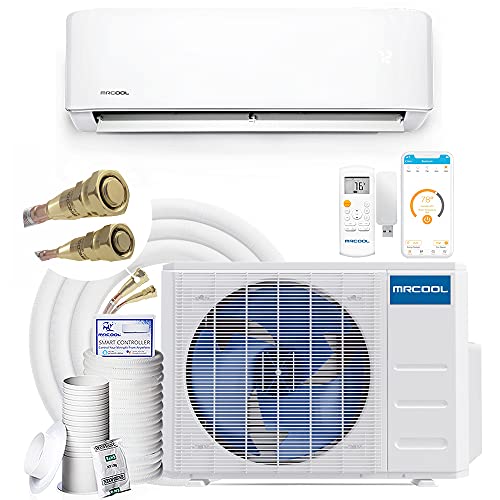A comfortable indoor temperature can make inclement weather more manageable than usual. But will you choose a heat pump or a straight cool system? We researched the different advantages and disadvantages of these systems, and here's what we found.
Property owners should look into the unique benefits and shortcomings supplied by heat pumps and straight cool systems to arrive at a sound decision. For instance, electric heat pumps often have quiet motors but aren't quite environmentally friendly. Alternatively, straight cool units can help properties save space but are fairly expensive to purchase.
Understanding these pros and cons can help lot owners gain value from their purchases, regardless of their chosen system. Continue reading as we discuss the advantages and disadvantages of these fixtures in greater detail. We'll also discuss the potential costs of using heating or cooling in heat pumps in a later section of this post.
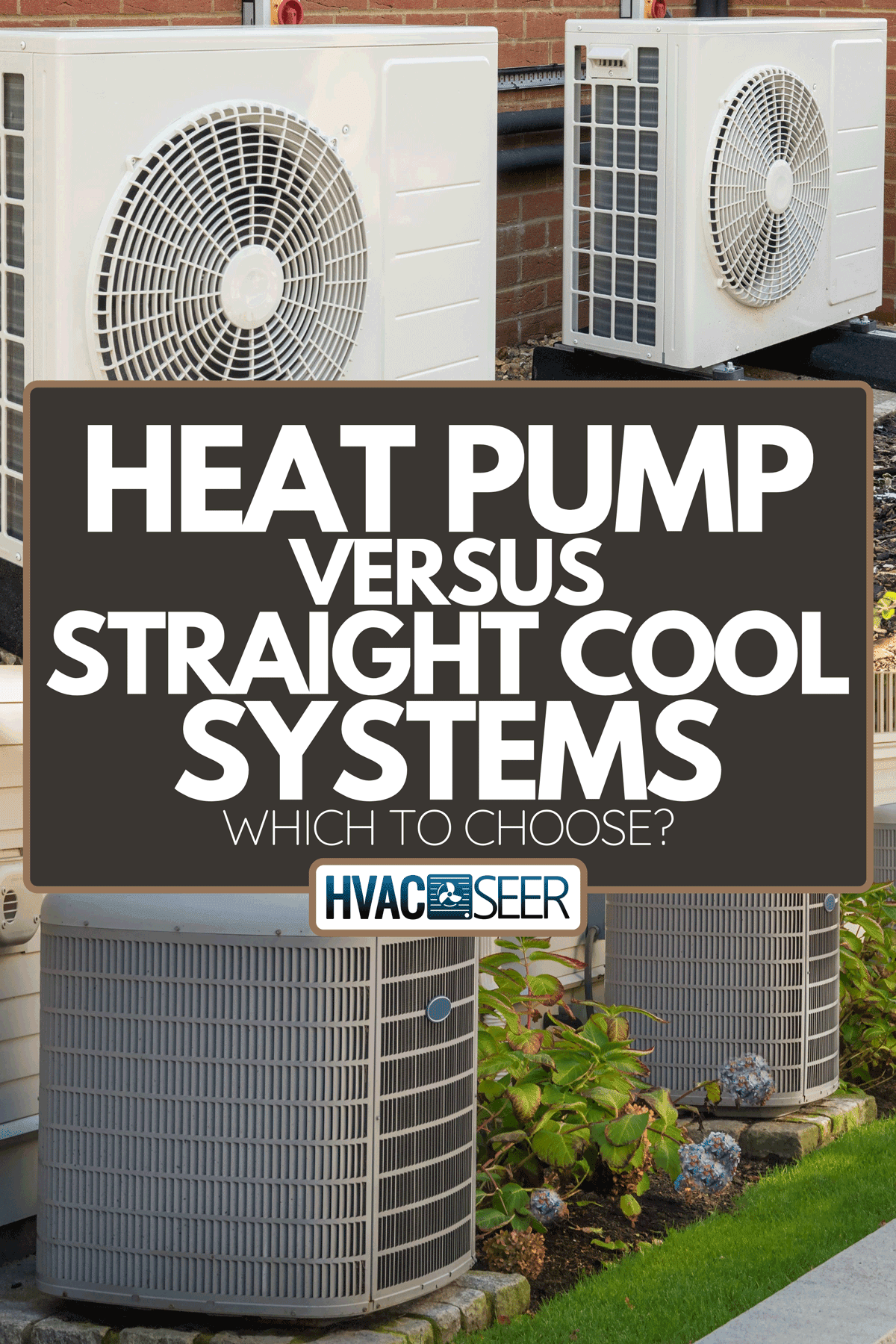
What Exactly Does A Heat Pump Do?
As its name implies, a heat pump propels warm outdoor temperatures into an indoor space. This system uses space conditioning mechanisms to supply comfortable temperatures to residences and commercial establishments.
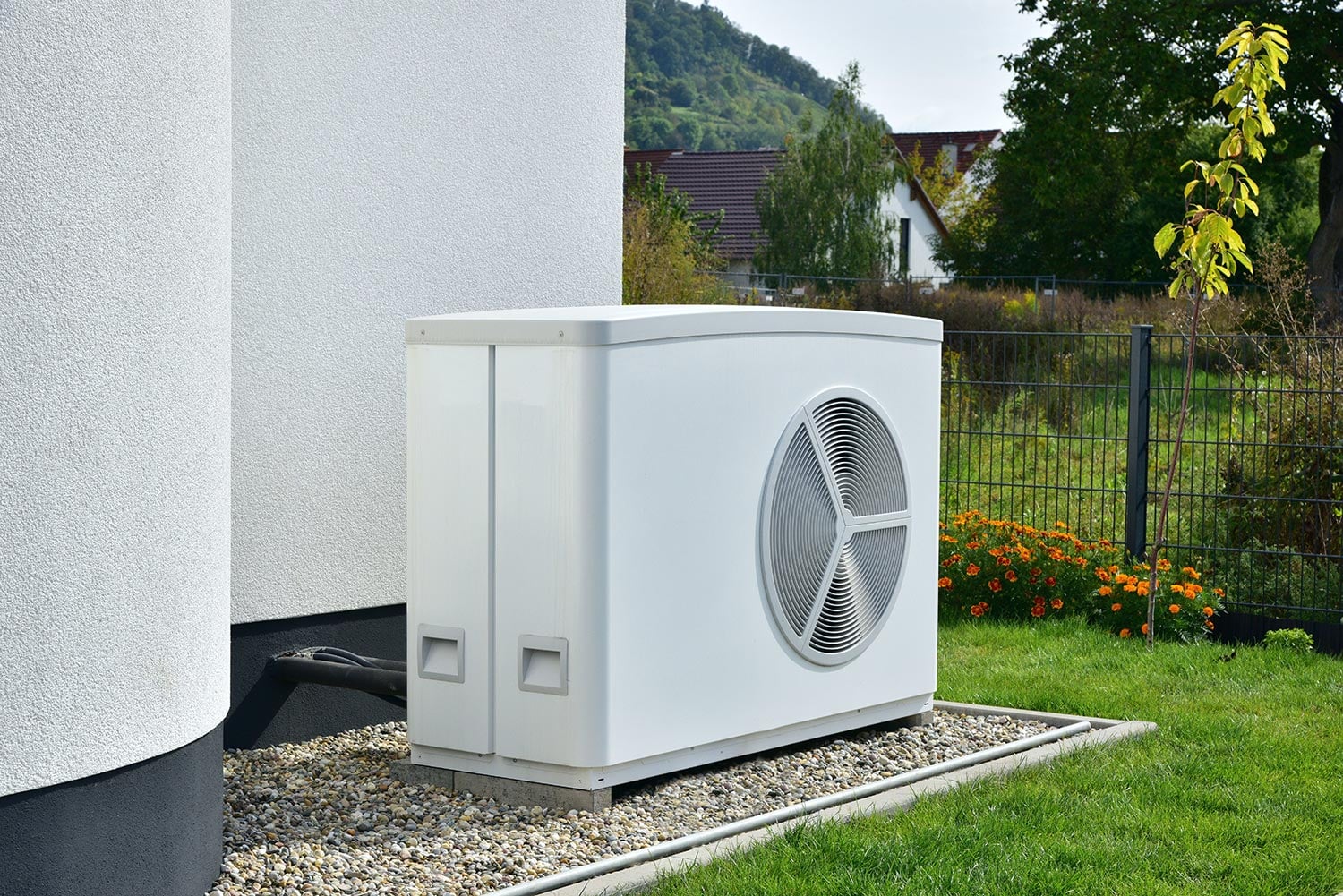
Many heat pumps also offer cooling features despite their name. In turn, these machines can also serve as air conditioners to adjacent spaces. If households use these heating systems for cooling, these fixtures will extract heat from indoor locations. This operation works similarly with refrigerators, reducing inside temperature.
Check out this heat pump split system on Amazon.
Heat pumps may also run on either electricity or natural gas, as we've previously covered.
What Is A Straight Cool System?
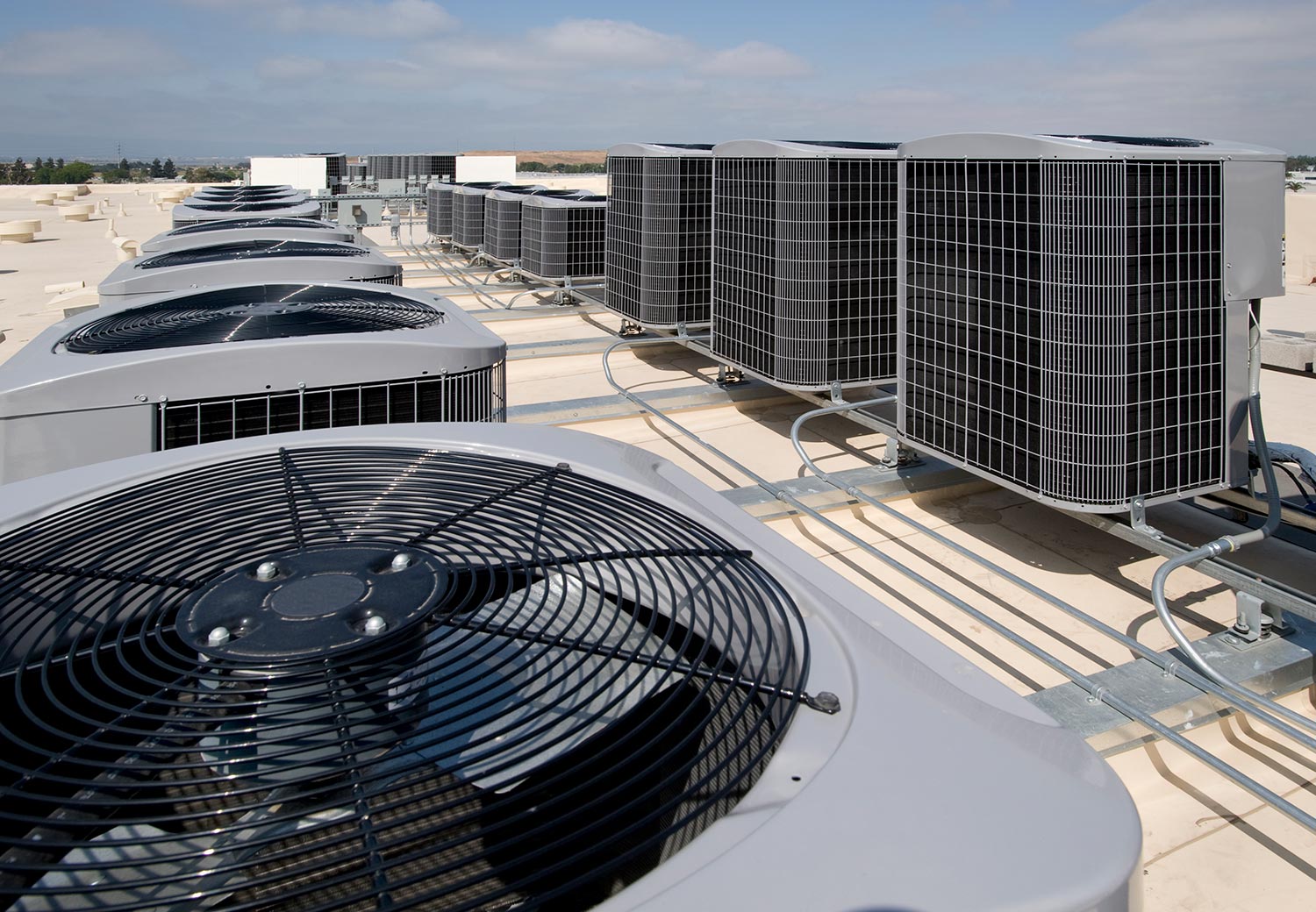
Straight cool systems are relatively any fixture that supplies indoor cold air. These fixtures work similarly with heat pumps but with a lack of warm air deliverance.
Not to be mistaken with the typical air conditioner, straight cool systems generally only come in two major classifications: rooftop units (RTUs) and split systems. Since these cooling machines are fairly large, more commercial establishments use these models, while homeowners would often prefer average air conditioners.
What Are The Pros And Cons Of A Heat Pump?
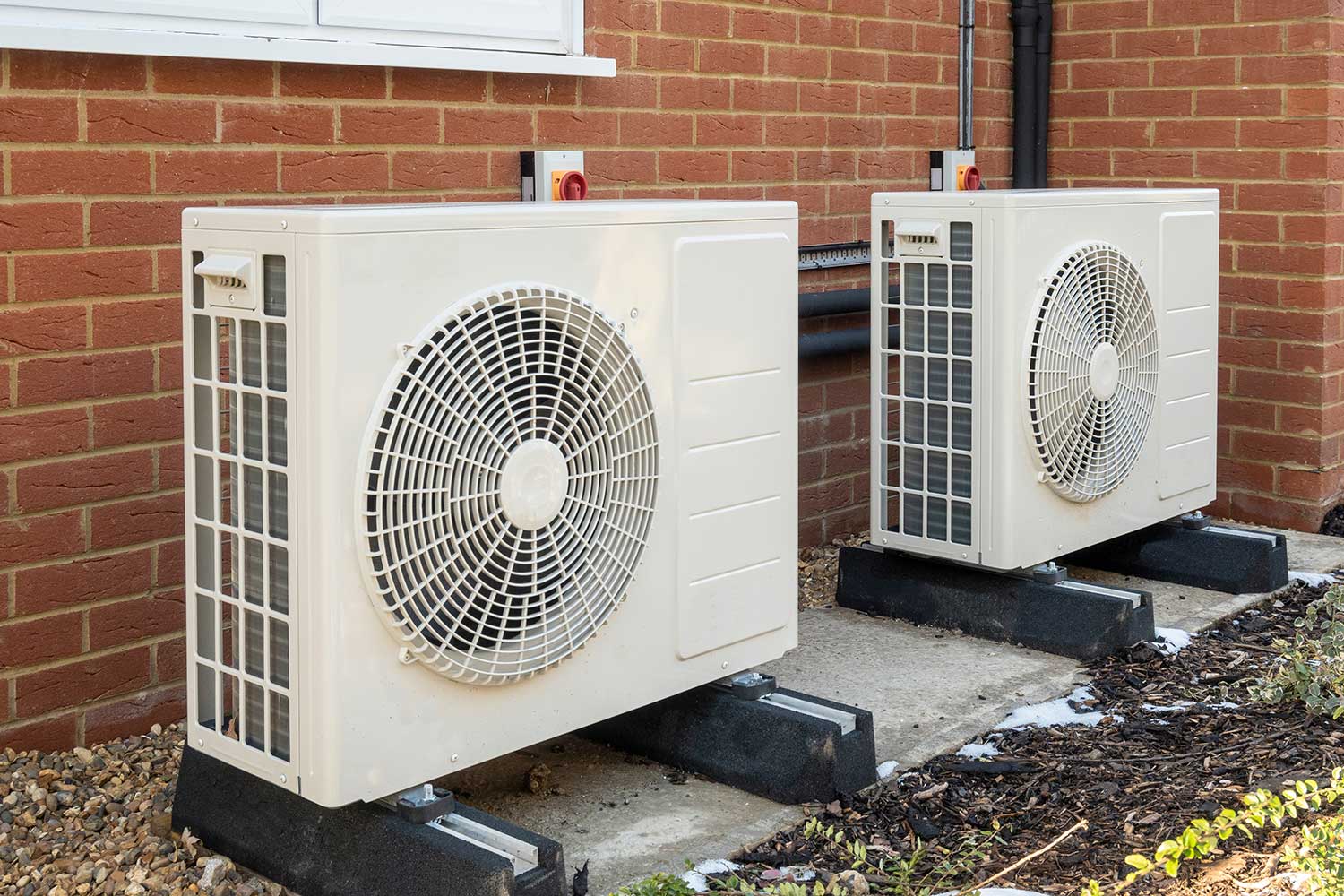
Homeowners should expect different benefits and shortcomings from using heat pumps. Some of the pros and cons you may encounter with these heating systems are:
Advantages of Heat Pumps
Low Noise
Properly functioning heat pumps have sound ratings of about 60 decibels, which is equivalent to people talking at reasonable volumes. The noise levels of these heating systems are also like moderate rainfall. Some models might even attain minimal sound ratings that can go as low as 18 decibels.
Check out this mini-split heat pump on Amazon.
Supplies Cold and Warm Air
As mentioned earlier, many heat pumps now supply hot and cold air to indoor spaces. These systems reduce the need for installing extra heating or cooling units, which would otherwise contribute to the skyrocketing of energy bills.
Reduced Maintenance Costs
Since many heat pump models can produce hot and cold air, property owners need only to pay for a single maintenance package. In comparison, dwellings with separate heating and cooling fixtures often need to spend more money for the care of these systems.
Disadvantages of Heat Pumps
Electricity Reliance
Although some heat pumps may run on natural gas, many of these heating systems generally require electricity to function. In turn, power outages may create uncomfortable indoor temperatures in dwellings because of the lack of sufficient heating or cooling.
Requires A Backup
Since many heat pumps rely on electricity, these fixtures rely on backup systems to produce sufficient cold or warmth to spaces. However, emergency heating is quite expensive, with usage costs averaging three3 times more than typical heat pump use.
Carbons Usage
Heat pumps generate a relatively small amount of carbon during use. Therefore, these heating and/or cooling fixtures contribute to global carbon emissions, which makes them not the most eco-friendly option in providing comfortable indoor temperatures.
What Are The Advantages And Disadvantages Of AC?
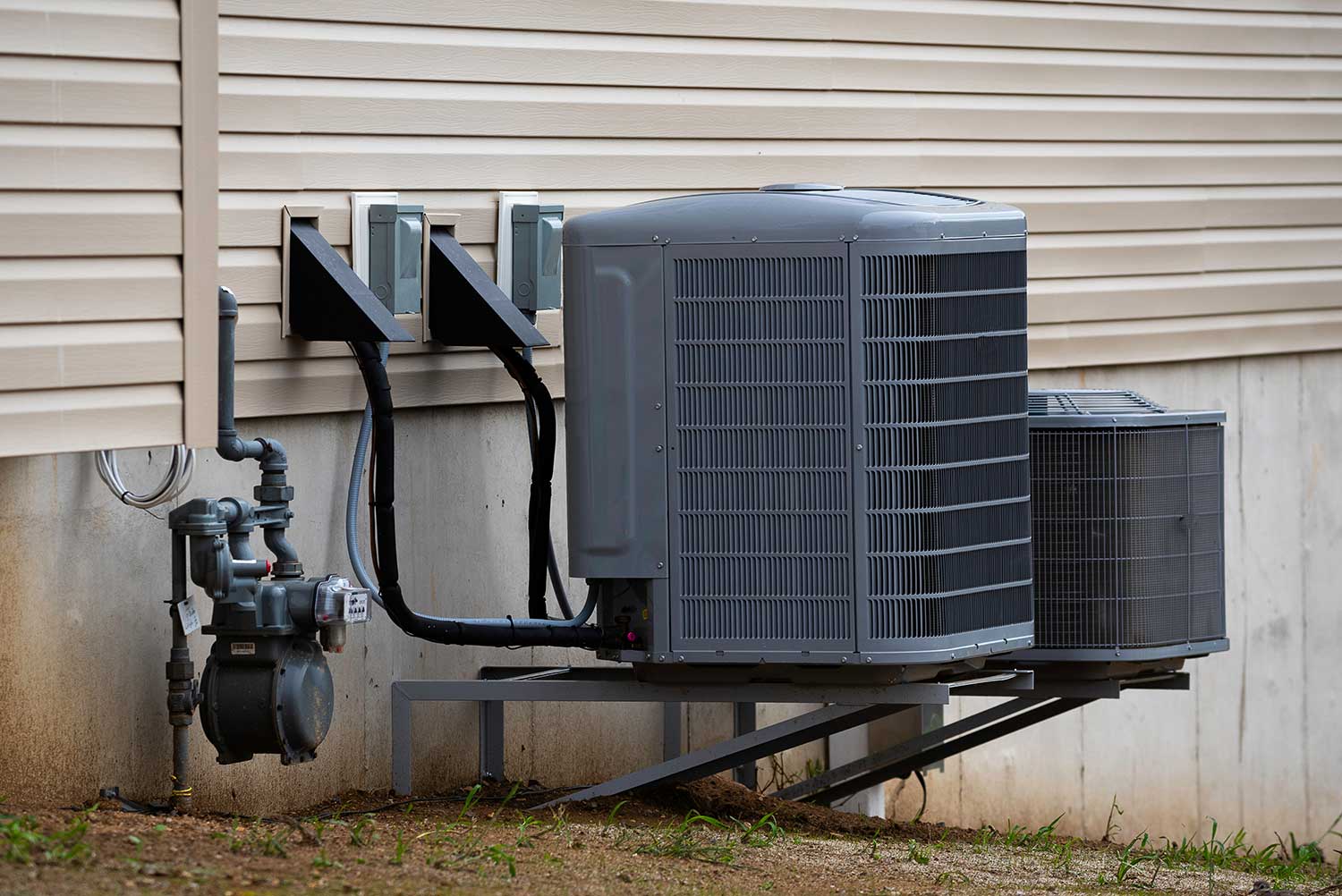
Like heat pumps, straight cool ACs offer unique advantages to property owners and guests. However, people in residences or establishments with straight cool systems should also expect some shortcomings from these fixtures. Continue reading to learn more about the pros and cons of these systems in more detail.
Advantages of Straight Cool Systems
Space Savers
Straight cool ACs, particularly RTUs, won’t take up indoor space. Lot owners are then free to decorate their interiors without the worry of trying to move these cooling systems. Straight cool RTUs also free up valuable floor space.
Easy to Install
Some straight cool models, such as box or window units, often have reasonably straightforward installation procedures. Homeowners with fairly tight budgets may handle the initial setup by themselves to save money on expensive professional labor costs.
Long Serviceable Life
The average AC unit often lasts only about ten years. On the other hand, straight cooling systems may last longer, particularly with proper care and maintenance.
Disadvantages of Straight Cool Systems
Needs Electricity
Like heat pumps, many straight cool systems rely on electricity to run. But perhaps the main difference between these fixtures is that straight cooling units don't usually have emergency backup heating or cooling features. In turn, power outages will result in uncomfortable indoor temperatures.
Requires Professional Care
Straight cool RTUs typically possess wiring that needs expert knowledge to maintain. Moreover, troubleshooting or tinkering with these systems might promote different hazards because of their locations.
Acquiring help from certified technicians will make straight cool maintenance jobs easier than expected. However, it also means extra expenses for landlords or lot owners.
Expensive Overhead
Many straight cool units are more expensive than heat pumps. Residences and commercial establishments that wish to own these systems may need to allocate a fairly large portion of their budget for the acquisition and installation.
After taking note of these benefits and drawbacks of heat pumps and straight cool systems, watch the short video below to gain more insight about the differences between these options:
Does It Cost More To Heat Or Cool With A Heat Pump?
Heat pumps typically use about five times less energy when using their cooling modes than when using them to heat spaces. For example, perhaps you might possess an electric heat pump with the following specifications:
- Tonnage: 2
- SEER Efficiency Rating: 20
- HSPF Efficiency Rating: 10
Consider, you live in a state that demands electricity rates of about $0.13 per Kilowatt-hour. As a result, the annual running cost of the heat pump in heating mode is approximately $720.40. However, using this system for cooling may only require you to pay about $219.38 in annual running expenses.
Keep in mind that the tonnage, SEER, and HSPF ratings play vital roles in calculating the overhead for using a heat pump. Another factor to think about is your home’s location since different states generally have dissimilar electricity rates.
At this point, you might also be curious about the amount of electricity consumed by a central air conditioner. If so, read our post on that topic for more information.
Final Words
Heat pumps and straight cool systems supply properties with distinct benefits and drawbacks. Identifying and understanding the similarities and differences between these two cooling and heating units can help enhance indoor comfort levels. Landlords and lot owners who aren’t in a hurry should take the time to assess their choices before making their final purchasing decisions.

